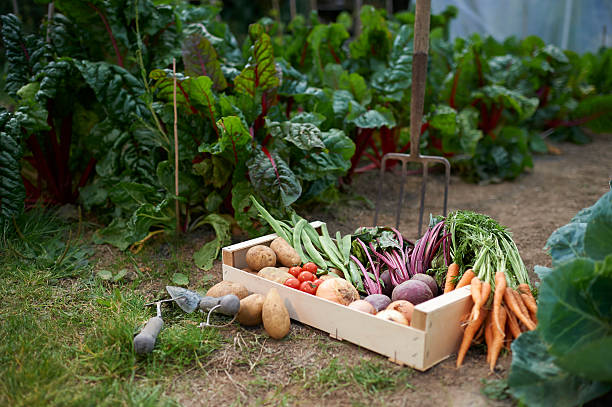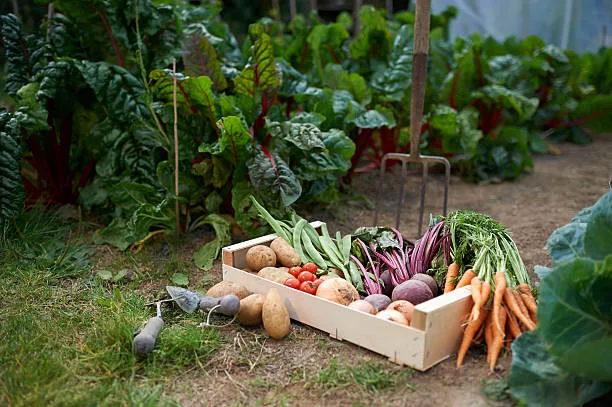Looking through a seed catalog, store rack, or online product offering, it’s easy to become overwhelmed by options. But, for gardeners who have had issues in the past, choosing different varieties is one way to preventatively manage disease.
Varieties can be referred to as tolerant or resistant, both of which can result in better yields, but are two different plant properties. Tolerance is the ability of the plant to endure disease, while still producing fruit. Resistance is the ability to prevent or slow disease development by way of naturally occurring aspects of the plant. The majority of hybrid vegetable varieties have been “improved” through natural breeding methods for these traits. Selection of resistant cultivars can reduce the impact diseases may have on plant vigor and yield, as well as reduce or eliminate the need for chemical management practices. Disease resistance is especially important for the home garden, because many either cannot or prefer not to spray.
No single cultivar is known to have resistance to all diseases of concern, and resistance is specific to a particular disease. Thus, gardeners should select varieties with resistance to diseases that are most common for their area or those that have been diagnosed as an issue in the past. Common diseases of major vegetable garden plants are listed below.

Tolerant and Resistant Cultivars
Tomato
Early blight is the most common disease of tomatoes in Kentucky, and often co-occurs with Septoria leaf spot. Tomatoes with some resistance to early blight are ‘Jasper,’ ‘Matt’s Wild Cherry,’ ‘Mountain Magic,’ and ‘Sun Gold’ (small cherry tomatoes), ‘Indigo Rose,’ ‘Plum Regal,’ and ‘Verona’ (Roma size), and ‘Defiant,’ ‘Iron Lady,’ ‘Mountain Fresh Plus,’ ‘Mountain Merit,’ and ‘Stellar’ (slicing size).
Pepper
The bacterial spot pathogen causes the most common disease of peppers. There are at least ten races of the pathogen, and pepper resistance is race-specific. Commonly occurring races can vary by location, so the safest route would be to choose varieties with resistance to as many races as possible. Some suggested varieties include: ‘Boca,’ ‘Ninja,’ ‘Outsider,’ ‘Playmaker,’ ‘Samurai,’ and ‘Tracer.”
Cucurbits (Cucumber, Squashes, Muskmelon, Watermelon, Pumpkin, and Zucchini)
Many powdery mildew resistant varieties of picklers, slicers, pumpkins, and squash are available.
Varieties that are less susceptible to bacterial wilt include the pickle cukes ‘Cross Country’ and ‘County Fair,’ ‘Howden’ pumpkins, and ‘Waltham Butternut’ squash. Manage cucumber beetles for best management of bacterial wilt. All watermelons have natural resistance to bacterial wilt.
Legume Vegetables (Beans and Peas)
Many French and green beans have been bred for resistance to anthracnose, but resistance in other types of beans is unavailable. ‘Caprice,’ ‘Espada,’ ‘Kentucky Blue,’ ‘Romano II,’ ‘Volunteer,’ and ‘Goldkist’ are fungal leaf spot and/or rust resistant bean varieties, with additional resistance to various viral diseases (not common in KY). ‘Green Arrow,’ ‘Cascadia,’ ‘Sugar Daddy,’ and ‘Oregon Sugar Pod II’ are pea varieties suggested for their resistance to powdery mildew, Fusarium, and Verticillium wilts.
Cole Crops (Cabbage, Broccoli, Cauliflower, Kohlrabi, and Brussel sprouts)
Black rot is the most common disease of cole crops in KY. Cabbage varieties ‘Bilko,’ ‘Blues,’ ‘China Pride,’ ‘Blue Vantage,’ and ‘Bronco’ carry resistance to a broad range of diseases, such as downy mildew, Fusarium yellows, and/or black rot. Broccoli varieties ‘Emperor,’ ‘Pinnacle,’ and ‘Green Magic’, as well as cauliflower variety ‘Majestic’ are resistant to downy mildew and/or black rot.





